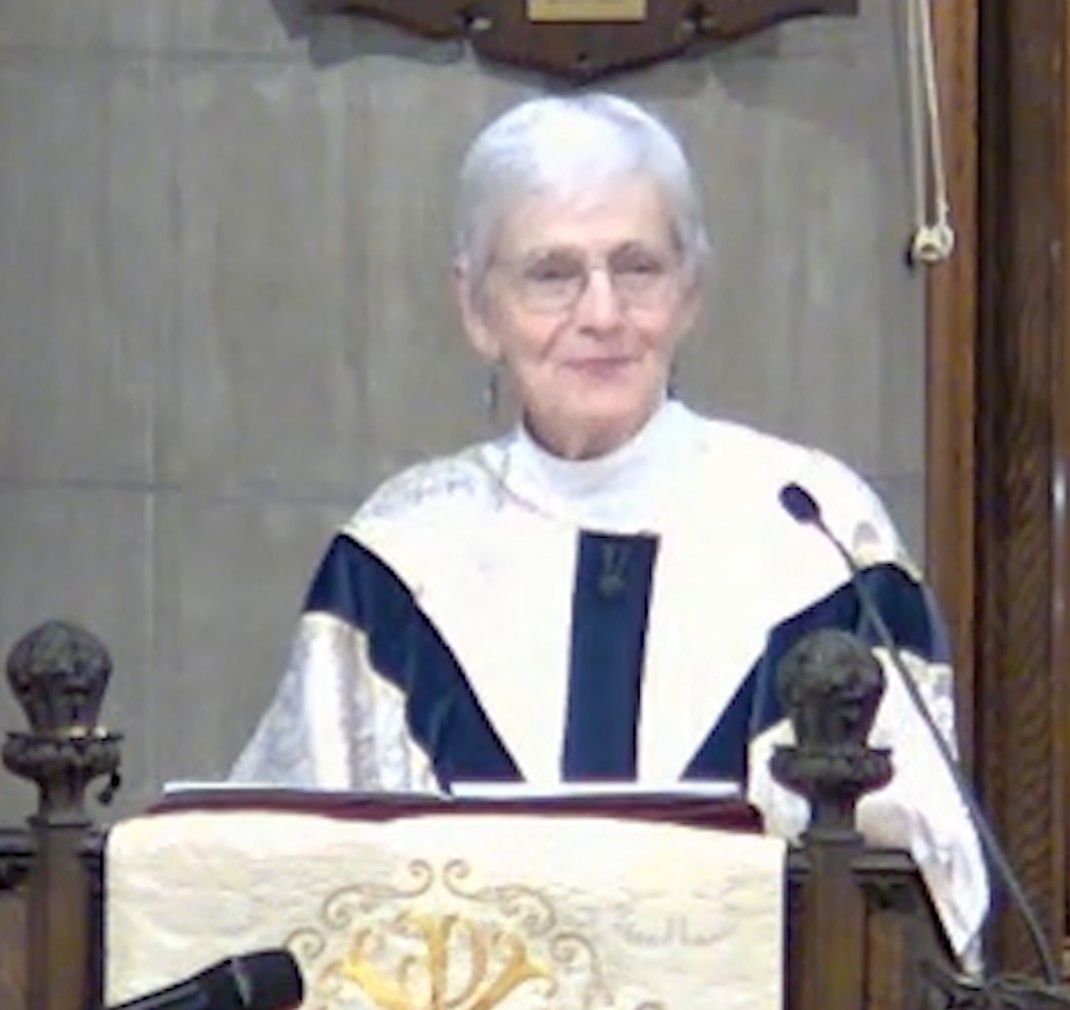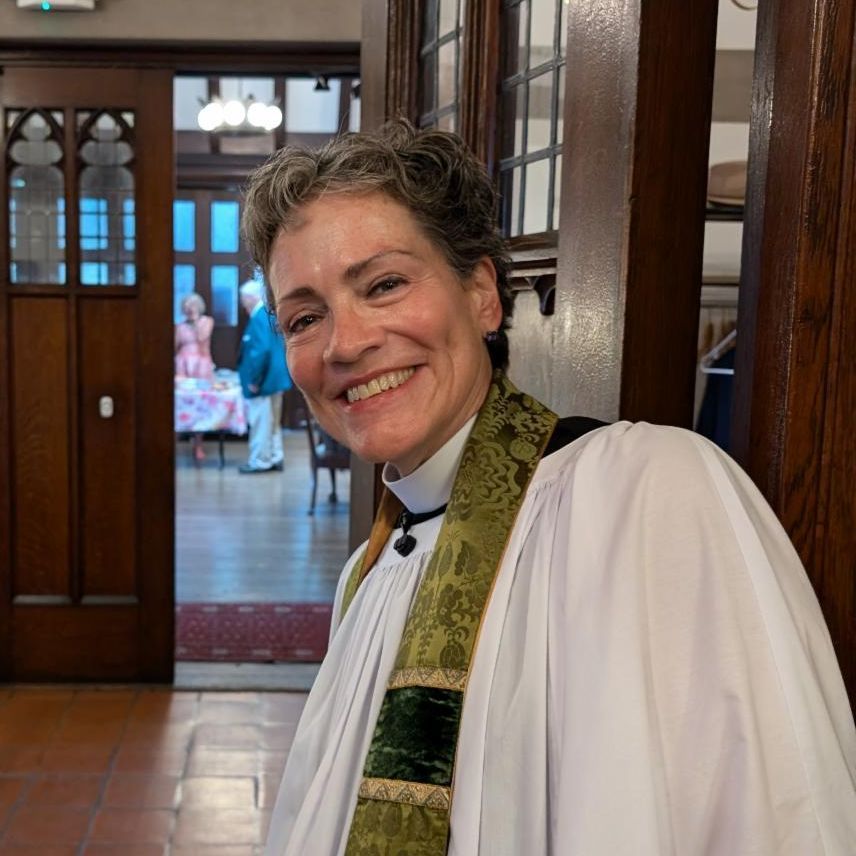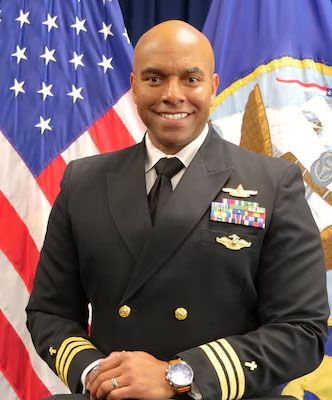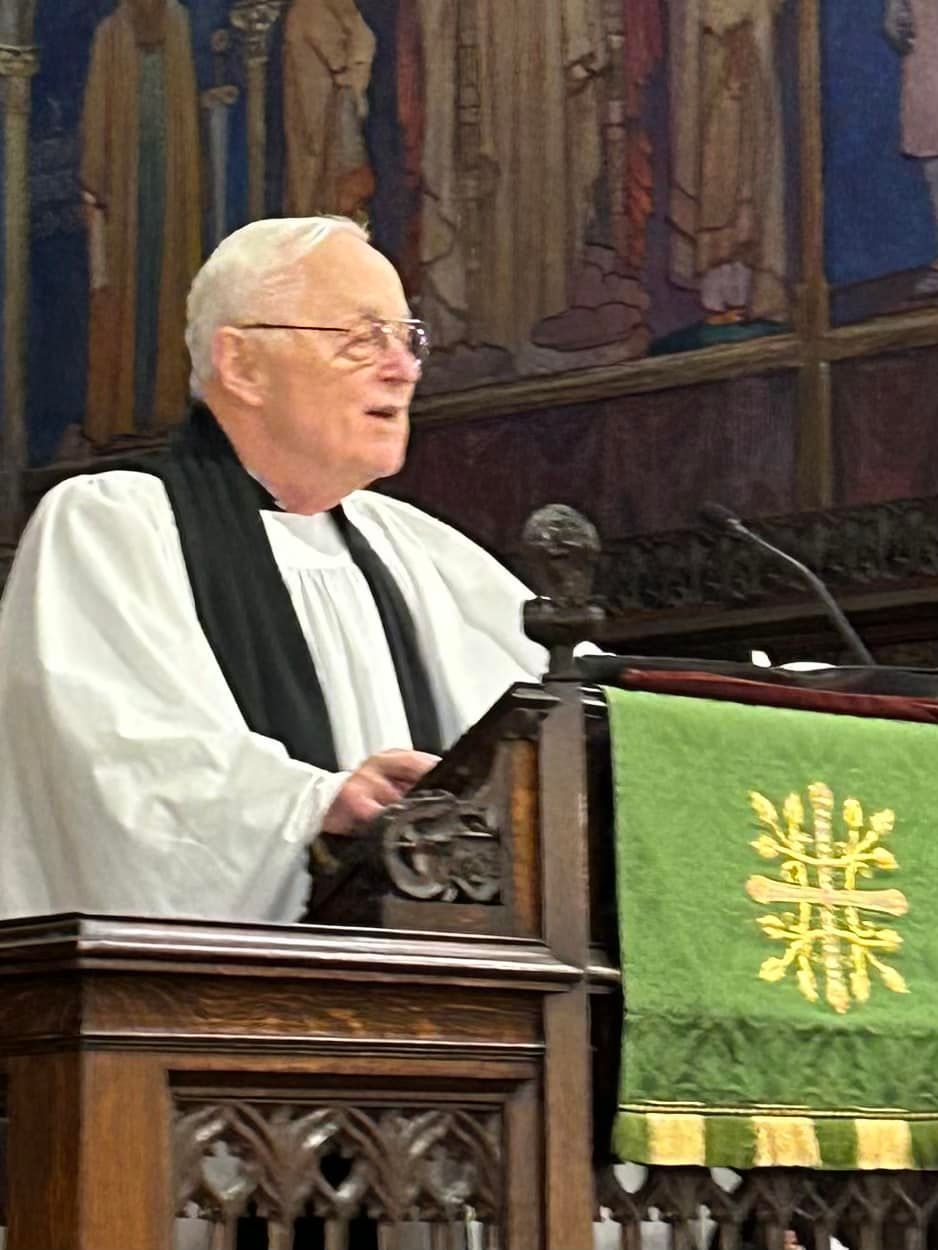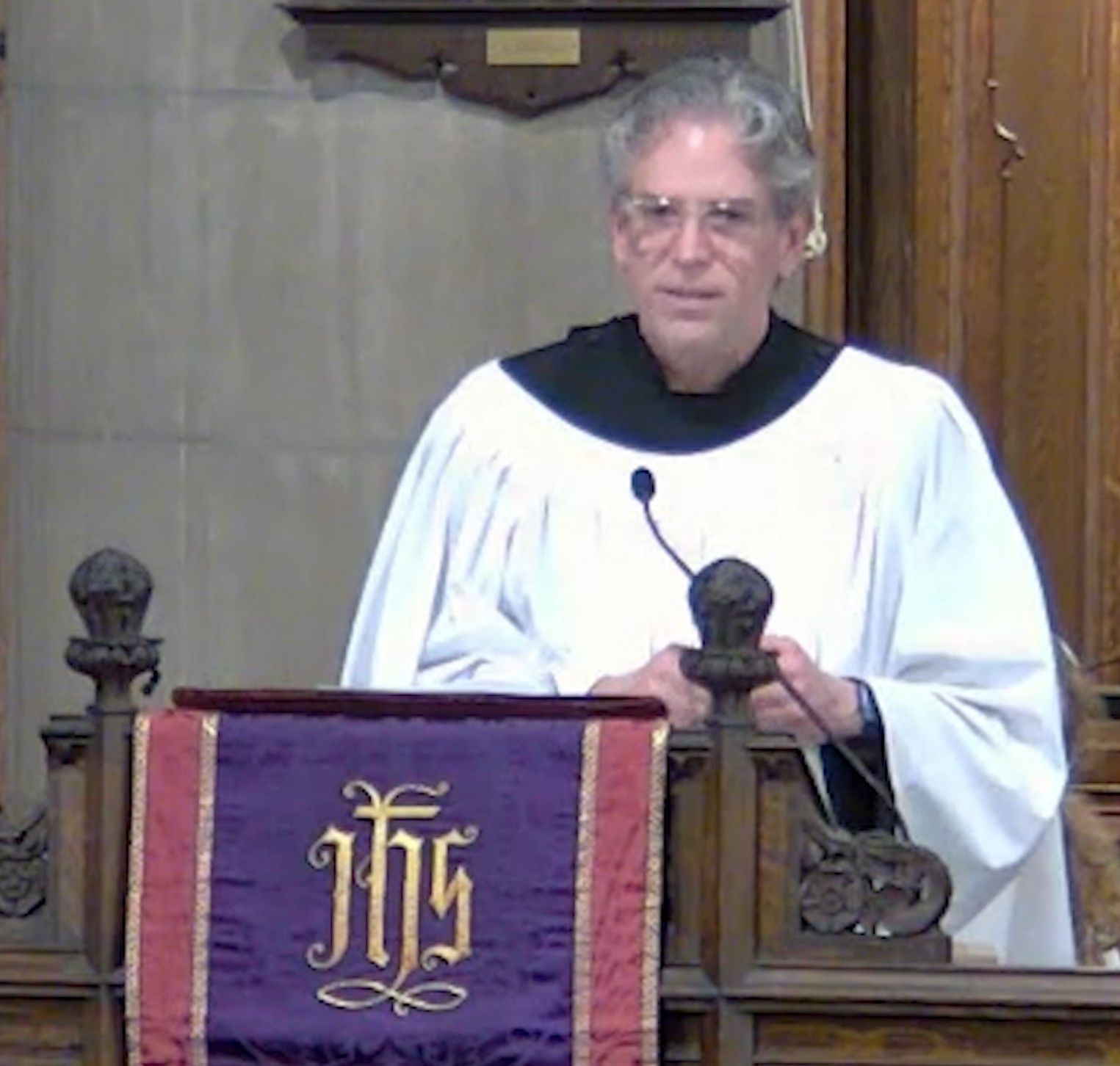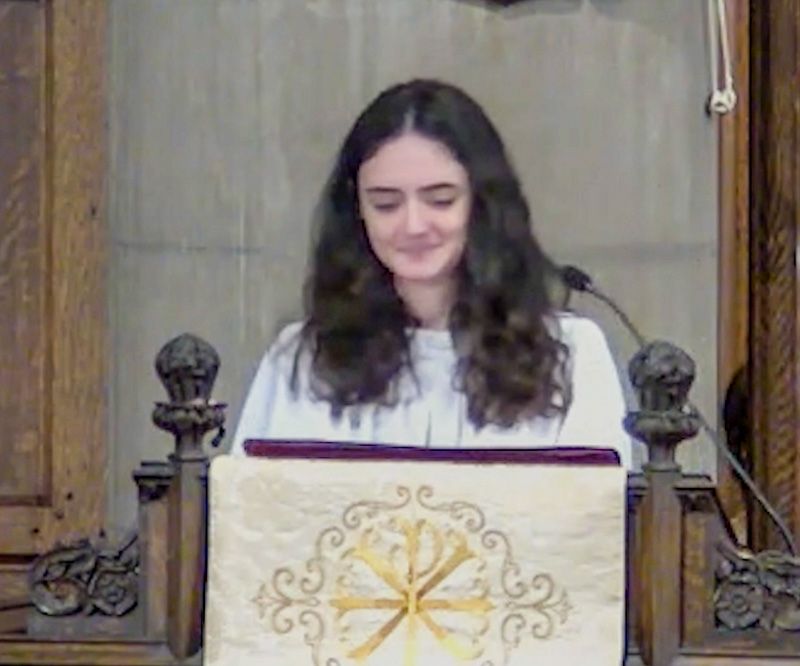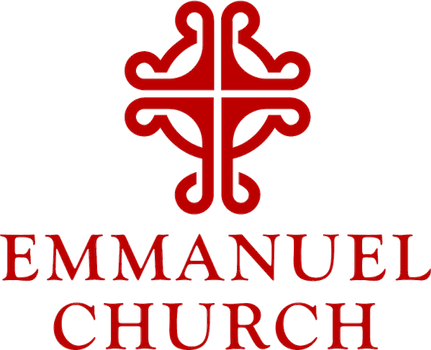All Saints
The Art of Weaving Peace and Hope*
*with respect and acknowledgment to Dr. Esther Mombo,
St. Paul’s University, Limuru (Kenya)
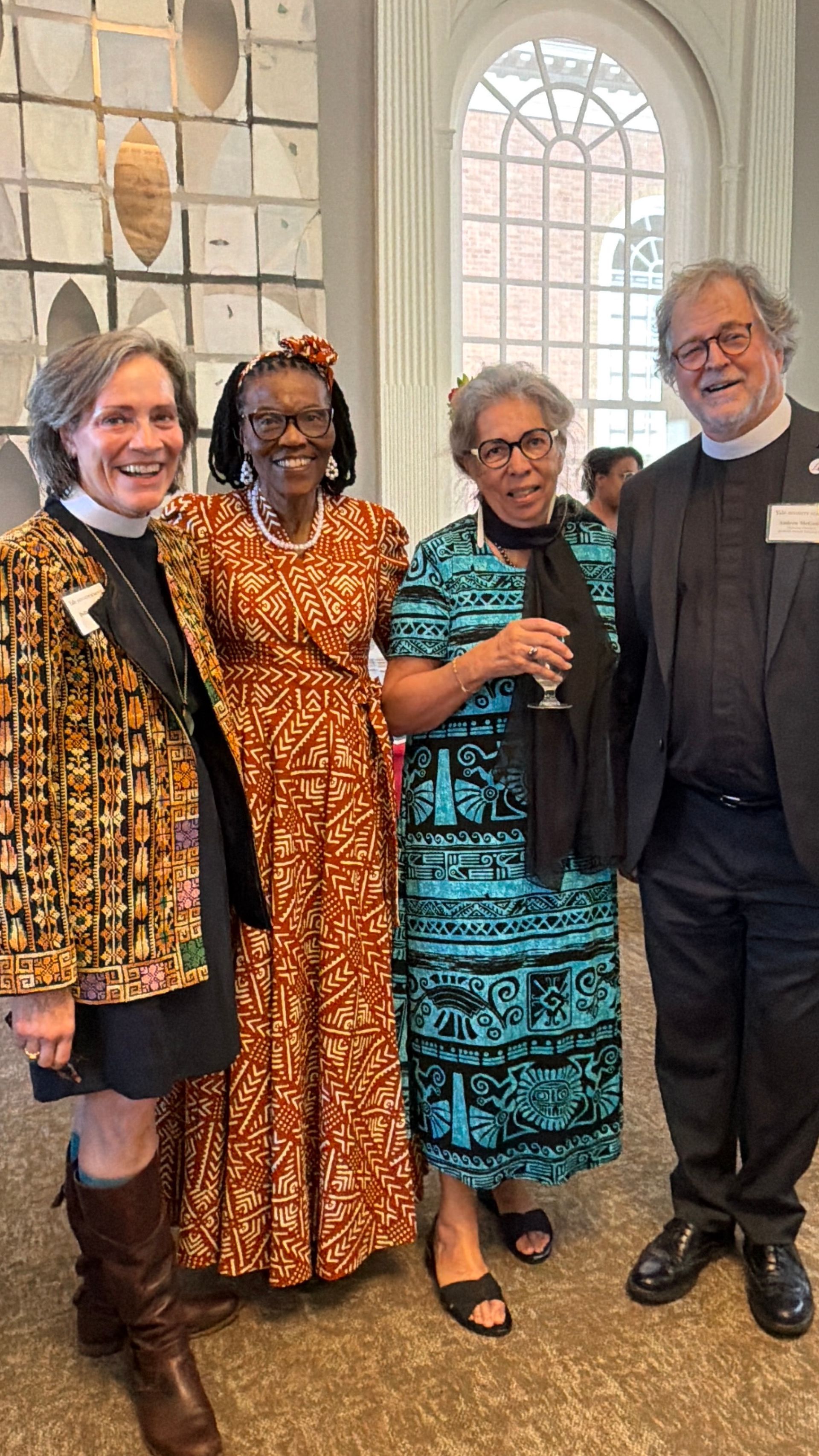
Almighty God, you have knit together your elect in one communion and fellowship in the mystical body of your Son Christ our Lord: Give us grace so to follow your blessed saints in all virtuous and godly living, that we may come to those ineffable joys that you have prepared for those who truly love you; one God, in glory everlasting. Amen.
Several weeks ago, Jere and I attended convocation at Yale Divinity School — several days of meetings, lectures, and worship services bringing alums back to campus to, among other things, celebrate Dean McGowan in his last year as dean of Berkeley Divinity School at Yale. Another huge piece for me was the opportunity to see my friend Dr. Esther Mombo, theology professor at St. Paul’s University, Limuru in Kenya, give the Pitts Lecture — a really big deal at Berkeley — and receive Berkeley’s honorary doctorate of divinity. I first met Esther Mombo in person at the Women Mentoring Women conference hosted by the Center for Anglican Communion Studies at Virginia Theological Seminary this past February, along with another of my Anglican Communion (s)heroes, Dr. Jenny Tē Paa Daniel, the first indigenous lay woman appointed to lead an Anglican seminary anywhere in the global Communion.
Dr. Tē Paa Daniel gave the Pitts lecture and was honored with Berkeley’s doctorate virtually in 2020 during the pandemic, and joined us in person at Yale last month to support her lifelong friend, Esther Mombo. Dr. Mombo’s lecture really had an impact on me, and I realized I had to share it in our community, because it speaks to us not only right here at Emmanuel, but to our lives here in Newport, in our country, and to relationships in and among communities all over the world. The lecture — Living Contradictions: The Art of Weaving Peace and Hope — is a gospel message of living, transformative force that responds to our current, persistent, and eternal challenges while at the same time anticipating all the possibilities and opportunities of our future — if we have hope and work together. How do we speak of peace in the midst of war — Africa, Asia, Europe, and the Middle East — Dr. Mombo asked, when peacekeeping itself has been racialized and militarized, often depicting some peoples as violent and others as peaceful?
The powerful — those who mastermind wars — are also too often the brokers of peace. When peace initiatives are masculinized and militarized, prioritizing domination over collaboration, peacemaking can feel exclusive — reserved to powerful specialists — like there’s nothing you and I can do to help. It can seem like there’s no way to be a part of the solution, no way to knit ourselves into the story, and no way to weave the connections among us that build community. We miss out on the relationship that comes with community, and the connection and joy, that lead to hope — that desire for the very best for those we care about. What if we talk instead about weaving peace? In her village, Dr. Mombo said, the women sit together to weave baskets. As they weave, they share stories — about family, community, struggle, and joy. They choose colors and patterns; no two baskets are the same.
African women theologians use this metaphor of weaving — and of stitching and storytelling — remember our Collect of the Day asking God to knit us into one community — to describe theology that brings together culture and scripture, pain and hope, in order to create wholeness. To weave is to repair our social fabric, frayed by conflict, injustice, economic disparity, and isolation, integrating difference and creating connection and beauty. Peace, like weaving, is slow, deliberate, communal, and transformative, gathering fragments — stories, struggles, identities — and bringing them into relationship. We’ve talked before about the African concept of Ubuntu, the essential statement of our identity in community: I am because we are.
Peace is not a private possession but a communal fabric. When one thread is torn, the whole cloth suffers. We know this is true! Last year during Lent, our community at Emmanuel was feeling a little frayed and tattered in a new administration, with some among us frightened for the future of family and loved ones, and others glad to see change but not feeling safe among those with different views. We wove together what we loved — our families, our pets, our community, our home here at Emmanuel — into our processional banner, which goes before us when we come into the church to worship, and stands as a reminder that we are different and we’re together. We’re like other communities that way.
This is exactly what Luke’s Beatitudes is saying. Blessed are you who are poor, Jesus says in Luke’s Sermon on the Plain, for yours is the kingdom of God. The Beatitudes — those tough, counter-intuitive proclamations of blessing on times in our lives that feel way more like woe — can be tough to hear. How can we possibly understand the experience of those who are poor, hungry, or excluded from the community as states God looks on with favor? How can the deep hurting sadness that shows out in weeping be a blessing? Maybe because human suffering invites others to come close to console and comfort — knitting and weaving together the body of Christ — the community that sustains us.
The people who came to hear the Sermon on the Plain knew this in their very bones. Luke’s gospel tells us that in addition to his disciples, a great multitude of people from all Judea, Jerusalem, and the coast of Tyre and Sidon came to hear him and to be healed of their diseases; and those who were troubled with unclean spirits — the first century way to describe mental or emotional illness — were cured. Everyone in the crowd was trying to touch him, Luke says, because healing power came out from Jesus, and they were all made well. Was this great multitude of people poor, hungry, weeping, or excluded from community? Almost certainly yes. We all are in some way. And they were healed. As preacher Ragan Sutterfield writes, The poor are not blessed as poor so much as blessed by what poverty makes possible. They are ready and open to the possibility of another reality.
The blessing is in God’s response that is invited by those conditions that feel like woes to those who are in them. Poverty invites plenty as compassion leads to sharing. Hunger invites nourishment and fullness. It’s not the loss, exclusion, or injustice that leads to weeping that is the blessing. It’s God’s response through those who show up — to share resources, feed the hungry, or console those who mourn that blesses those who are suffering, bringing them comfort while also healing the comforters. To weave peace is to welcome diversity — of gender, race, sexuality, culture, and belief — and to learn from those at the margins. It is slow, delicate, and often unseen work — yet profoundly sacred. For in every small act of listening, welcoming, or reconciling, we participate in God’s work of making all things new, remembering that history is not only what has happened to us, but what we dare to do with it now. Amen

